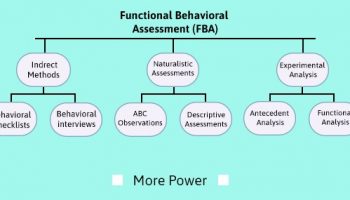The Registered Behavior Technician (RBT) exam is an important step towards becoming a certified medical professional who conducts applied behavior analysis (ABA) treatment for individuals with developmental disorders like autism. It is essential to prepare effectively for this exam as it measures the competency of individuals in crucial areas of ABA treatment, such as measurement, assessment, skill acquisition, behavior reduction, documentation, and reporting. Passing this exam is necessary for individuals to become an RBT and provide ABA treatment under the supervision of a BCBA or RBT supervisor.
This article will provide valuable insights on how to prepare for the RBT exam effectively. The main sections of this article will include understanding the requirements and format of the exam, reviewing the RBT task list, creating a study plan, using study materials, practicing regularly, seeking feedback and guidance, and taking care of yourself. By following these guidelines, individuals can confidently prepare for the RBT exam and increase their chances of success.
Key takeaways:
- Avoid cramming and read a little bit every day to promote permanent learning.
- Take excellent notes and create study lists to organize your study material.
- Use SAFMEDS and case studies to practice and reinforce your knowledge.
- Practice interpreting graphs and utilizing stimulus control to your advantage.
- Dedicate time to study without distractions and prepare all study material beforehand.
- Regularly take the RBT practice exam and adjust your study plan according to the results.
By following these tips and tricks, individuals can effectively prepare for the RBT exam and feel confident in their knowledge and abilities. Creating a structured study plan, practicing regularly, and minimizing distractions are all key components to success.
Understand The Requirements And Format Of The Exam

To become an RBT, there are specific eligibility requirements that individuals must meet before they can take the RBT exam. These requirements include:
- Age: Candidates must be at least 18 years old to take the RBT exam.
- Education: Candidates must have a high school diploma or equivalent.
- Background Check: A background check is required to ensure that candidates do not have a criminal record that would disqualify them from working with vulnerable groups.
Additionally, candidates must complete the RBT 40-hour training program, which covers topics such as ethics, normal employment requirements, and specific ABA treatment procedures. Candidates must also pass the first competence assessment to be eligible to take the RBT exam.
The RBT exam is a computer-based assessment administered by Pearson VUE, a testing corporation with locations worldwide that meet stringent security criteria. The exam consists of 85 multiple-choice questions, with 75 of these questions counting towards the final score. The remaining 10 questions are unscored pilot questions used to develop future versions of the exam. The exam takes 90 minutes to complete, and candidates will be given their results immediately upon completion.
The RBT exam covers six key responsibilities of RBTs, as defined by the Behavior Analyst Certification Board (BACB): measurement, assessment, skill acquisition, behavior reduction, documentation and reporting, and professional behavior and scope of practice. The questions on the exam are weighted differently, with 13% of the questions covering measurement, 11% covering assessment, 32% covering skill acquisition, 16% covering behavior reduction, and 13% covering documentation and reporting.
The RBT exam uses a pass/fail system, with a passing score of 400 or higher out of a possible 500 points. Candidates who do not pass the exam on their first attempt can schedule a retake. The BACB allows RBT candidates to take the exam up to eight times within a one-year authorization window, starting in November 2020.
Read Also: Everything You Need To Know About F5 Certification Exams
Review The RBT Task List
The RBT task list is a document created by the Behavior Analyst Certification Board (BACB) that outlines the competencies required for individuals to become Registered Behavior Technicians. The task list is used as a blueprint for the RBT exam, ensuring that the exam assesses the candidate’s knowledge and skills in the key areas required for providing effective ABA treatment.
The RBT task list includes the following six sections:
- Measurement: This section covers the ability to collect and record data, use quantifiable language, and create graphs to track progress.
- Assessment: This section covers the ability to conduct preference assessments, functional assessments, and skill assessments.
- Skill Acquisition: This section covers the ability to develop and implement skill acquisition plans, use reinforcement strategies, and fade prompts and cues.
- Behavior Reduction: This section covers the ability to define target behaviors, identify the function of those behaviors, and develop and implement behavior reduction plans.
- Documentation and Reporting: This section covers the ability to maintain accurate and detailed records, follow ethical and legal guidelines, and communicate effectively with supervisors and team members.
- Professional Conduct and Scope of Practice: This section covers the ability to maintain professional boundaries, respect the dignity and rights of clients, and seek guidance and support when necessary.
It’s crucial for individuals preparing for the RBT exam to thoroughly review the task list to ensure they understand the knowledge and skills required to become an RBT. By reviewing the task list, individuals can focus their study efforts on the areas where they need the most improvement and feel more confident when taking the exam.
The RBT task list is available on the BACB’s website, and readers are encouraged to review it thoroughly. Here’s the link to the task list: https://www.bacb.com/rbt-task-list/
Create A Study Plan

Creating a study plan is crucial for individuals preparing for the RBT exam. A study plan can help individuals stay on track, focus their study efforts on the areas where they need the most improvement, and feel more confident when taking the exam. Here are some tips for creating an effective study plan:
- Set goals: Start by setting specific goals for what you want to accomplish in your study sessions. For example, you may want to focus on mastering a particular section of the RBT task list or completing a certain number of practice questions.
- Create a schedule: Once you’ve set your goals, create a study schedule that works for you. This may involve blocking out specific times each day or week for studying or setting aside longer periods of time for more focused study sessions.
- Use a variety of study materials: To ensure that you’re getting a well-rounded understanding of the material, use a variety of study materials such as textbooks, online resources, practice exams, and flashcards.
- Track your progress: Regularly assess your progress to see how you’re doing and where you need to focus your efforts. You can do this by taking practice exams or quizzes, reviewing your notes, or discussing the material with a study partner.
- Stay motivated: It’s easy to get discouraged when studying for a challenging exam, but staying motivated is essential for success. One way to stay motivated is to remind yourself of your long-term goals and why becoming an RBT is important to you.
- Manage your time effectively: Be sure to schedule breaks into your study sessions to avoid burnout, and make time for self-care activities such as exercise and relaxation.
By following these tips, individuals can create a study plan that works for them and helps them achieve their goals of passing the RBT exam. Remember, creating a study plan is only the first step – it’s important to stick to the plan and adjust it as needed to ensure that you’re making progress and staying on track.
Use Study Materials
Various types of study materials are available to help individuals prepare for the RBT exam. Here are some examples:
- Textbooks: Textbooks are traditional study materials that can provide in-depth coverage of the material covered on the exam. They may include case studies, review questions, and practice scenarios.
- Online courses: Online courses offer the convenience of studying from anywhere with an internet connection and provide a structured learning experience. They may include video lectures, interactive quizzes, and progress tracking.
- Practice exams: Practice exams are a great way to get a sense of the actual exam and identify areas where you need to improve. They may be available in a variety of formats, such as online quizzes or downloadable PDFs.
- Flashcards: Flashcards are a useful tool for memorizing key terms and concepts. They may include visual aids and short descriptions of important concepts.
When looking for high-quality study materials, individuals should choose materials that are up-to-date and aligned with the current version of the RBT task list. They should also look for materials that are from reputable sources, such as the Behavior Analyst Certification Board or established publishers of ABA materials.
It’s recommended that individuals use a variety of study materials to ensure that they’re getting a well-rounded understanding of the material. For example, they might use a textbook to learn the foundational concepts, take an online course to reinforce their knowledge, and take practice exams to assess their progress. By using a variety of study materials, individuals can ensure that they’re well-prepared for the RBT exam and feel confident on test day.
Practice, Practice, Practice

Practicing exam questions is a crucial part of preparing for the RBT exam. It offers several benefits, such as:
- Becoming familiar with the exam format: By practicing exam questions, individuals can get a sense of what the actual exam will be like, including the structure of the questions and the time limit. This can help reduce anxiety on test day and allow individuals to focus on answering the questions.
- Identifying areas for improvement: Practicing exam questions can help individuals identify areas where they need to improve their knowledge or skills. By reviewing the questions they got wrong or struggled with, individuals can focus their study efforts on the areas where they need the most help.
- Building confidence: Regular practice can help individuals build confidence in their knowledge and abilities. This can help them feel more relaxed and focused on test day, allowing them to perform to the best of their abilities.
Several free practice exams are available, such as the one mentioned in the article. It’s essential to take advantage of these resources regularly and practice as much as possible. Practice exams can be found online, in textbooks, or provided by study courses. It’s important to make time for regular practice and track progress to ensure that you’re improving over time.
In conclusion, regular practice is critical to preparing for the RBT exam. It offers several benefits, including becoming familiar with the exam format, identifying areas for improvement, and building confidence. Free practice exams are an excellent resource that individuals should take advantage of to ensure that they’re well-prepared for the exam.
Seek Feedback And Guidance
Seeking feedback and guidance is essential in preparing for the RBT exam. Feedback from peers, supervisors, or instructors can help individuals identify areas where additional study may be needed. By getting input from others, individuals can gain a fresh perspective on their knowledge and skills and identify areas that they may have overlooked.
Additionally, it’s essential to ask questions and seek guidance from knowledgeable individuals, such as BCBAs or RBT supervisors. These professionals can offer insight into the field of ABA and provide guidance on how to prepare for the exam. They may also be able to provide additional resources or offer advice on study strategies.
When seeking feedback or guidance, it’s important to approach the conversation with an open mind and a willingness to learn. Be prepared to listen to feedback and take constructive criticism. It’s also important to ask specific questions and be clear about what you need help with.
In conclusion, seeking feedback and guidance from others is essential to preparing for the RBT exam. Peers, supervisors, and instructors can offer valuable insight into areas where additional study may be needed, while knowledgeable professionals can provide guidance on how to prepare effectively. Individuals can feel more confident and well-prepared for the exam by seeking feedback and guidance.
Conclusion
In summary, preparing for the RBT exam requires a comprehensive approach that includes understanding the requirements and format of the exam, reviewing the RBT task list, creating a study plan, using high-quality study materials, practicing exam questions, and seeking feedback and guidance from others.
To prepare effectively for the RBT exam, it’s important to meet the eligibility requirements, including age, education, and training. Understanding the format of the exam and reviewing the RBT task list is essential for success. Creating a study plan, using a variety of study materials, and practicing regularly are key components of effective exam preparation. Seeking feedback and guidance from peers, supervisors, or instructors can also be helpful in identifying areas where additional study may be needed.
By following the tips and strategies provided in this article, individuals can feel more confident and well-prepared for the RBT exam. With dedication and effort, success on the exam is achievable.
Read Also:




























